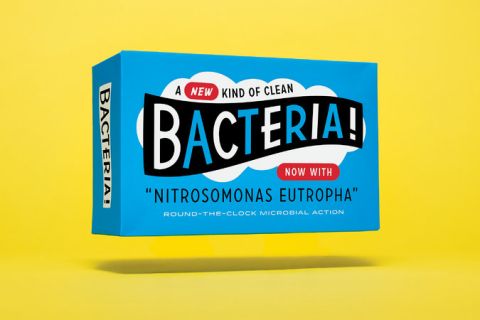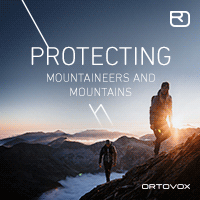Bacteria-Rich Hygiene Experiment - No need to shower again?
Imagine the possibility of a multi-week long adventure in the backcountry with out the need to shower,.... ever. Exert yourself all day, sweat like a pig and no stink. And no soap. Just a mystery tonic that contains billions of cultivated Nitrosomonas eutropha, an ammonia-oxidizing bacteria that cleans you so you don't have to. That's the idea behind AOBiome's new product. Get the full story below...

For most of my life, if I’ve thought at all about the bacteria living on my skin, it has been while trying to scrub them away. But recently I spent four weeks rubbing them in. I was Subject 26 in testing a living bacterial skin tonic, developed by AOBiome, a biotech start-up in Cambridge, Mass. The tonic looks, feels and tastes like water, but each spray bottle of AO+ Refreshing Cosmetic Mist contains billions of cultivated Nitrosomonas eutropha, an ammonia-oxidizing bacteria (AOB) that is most commonly found in dirt and untreated water. AOBiome scientists hypothesize that it once lived happily on us too — before we started washing it away with soap and shampoo — acting as a built-in cleanser, deodorant, anti-inflammatory and immune booster by feeding on the ammonia in our sweat and converting it into nitrite and nitric oxide.
In the conference room of the cramped offices that the four-person AOBiome team rents at a start-up incubator, Spiros Jamas, the chief executive, handed me a chilled bottle of the solution from the refrigerator. “These are AOB,” he said. “They’re very innocuous.” Because the N. eutropha are alive, he said, they would need to be kept cold to remain stable. I would be required to mist my face, scalp and body with bacteria twice a day. I would be swabbed every week at a lab, and the samples would be analyzed to detect changes in my invisible microbial community.
In the last few years, the microbiome (sometimes referred to as “the second genome”) has become a focus for the health conscious and for scientists alike. Studies like the Human Microbiome Project, a national enterprise to sequence bacterial DNA taken from 242 healthy Americans, have tagged 19 of our phyla (groupings of bacteria), each with thousands of distinct species. As Michael Pollan wrote in this magazine last year: “As a civilization, we’ve just spent the better part of a century doing our unwitting best to wreck the human-associated microbiota. . . . Whether any cures emerge from the exploration of the second genome, the implications of what has already been learned — for our sense of self, for our definition of health and for our attitude toward bacteria in general — are difficult to overstate.”
While most microbiome studies have focused on the health implications of what’s found deep in the gut, companies like AOBiome are interested in how we can manipulate the hidden universe of organisms (bacteria, viruses and fungi) teeming throughout our glands, hair follicles and epidermis. They see long-term medical possibilities in the idea of adding skin bacteria instead of vanquishing them with antibacterials — the potential to change how we diagnose and treat serious skin ailments. But drug treatments require the approval of the Food and Drug Administration, an onerous and expensive process that can take upward of a decade. Instead, AOBiome’s founders introduced AO+ under the loosely regulated “cosmetics” umbrella as a way to release their skin tonic quickly. With luck, the sales revenue will help to finance their research into drug applications. “The cosmetic route is the quickest,” Jamas said. “The other route is the hardest, the most expensive and the most rewarding.”
AOBiome does not market its product as an alternative to conventional cleansers, but it notes that some regular users may find themselves less reliant on soaps, moisturizers and deodorants after as little as a month. Jamas, a quiet, serial entrepreneur with a doctorate in biotechnology, incorporated N. eutropha into his hygiene routine years ago; today he uses soap just twice a week. The chairman of the company’s board of directors, Jamie Heywood, lathers up once or twice a month and shampoos just three times a year. The most extreme case is David Whitlock, the M.I.T.-trained chemical engineer who invented AO+. He has not showered for the past 12 years. He occasionally takes a sponge bath to wash away grime but trusts his skin’s bacterial colony to do the rest. I met these men. I got close enough to shake their hands, engage in casual conversation and note that they in no way conveyed a sense of being “unclean” in either the visual or olfactory sense.
For my part in the AO+ study, I wanted to see what the bacteria could do quickly, and I wanted to cut down on variables, so I decided to sacrifice my own soaps, shampoo and deodorant while participating. I was determined to grow a garden of my own.
Full story by Julia Scott and originally posted at nytimes.com








